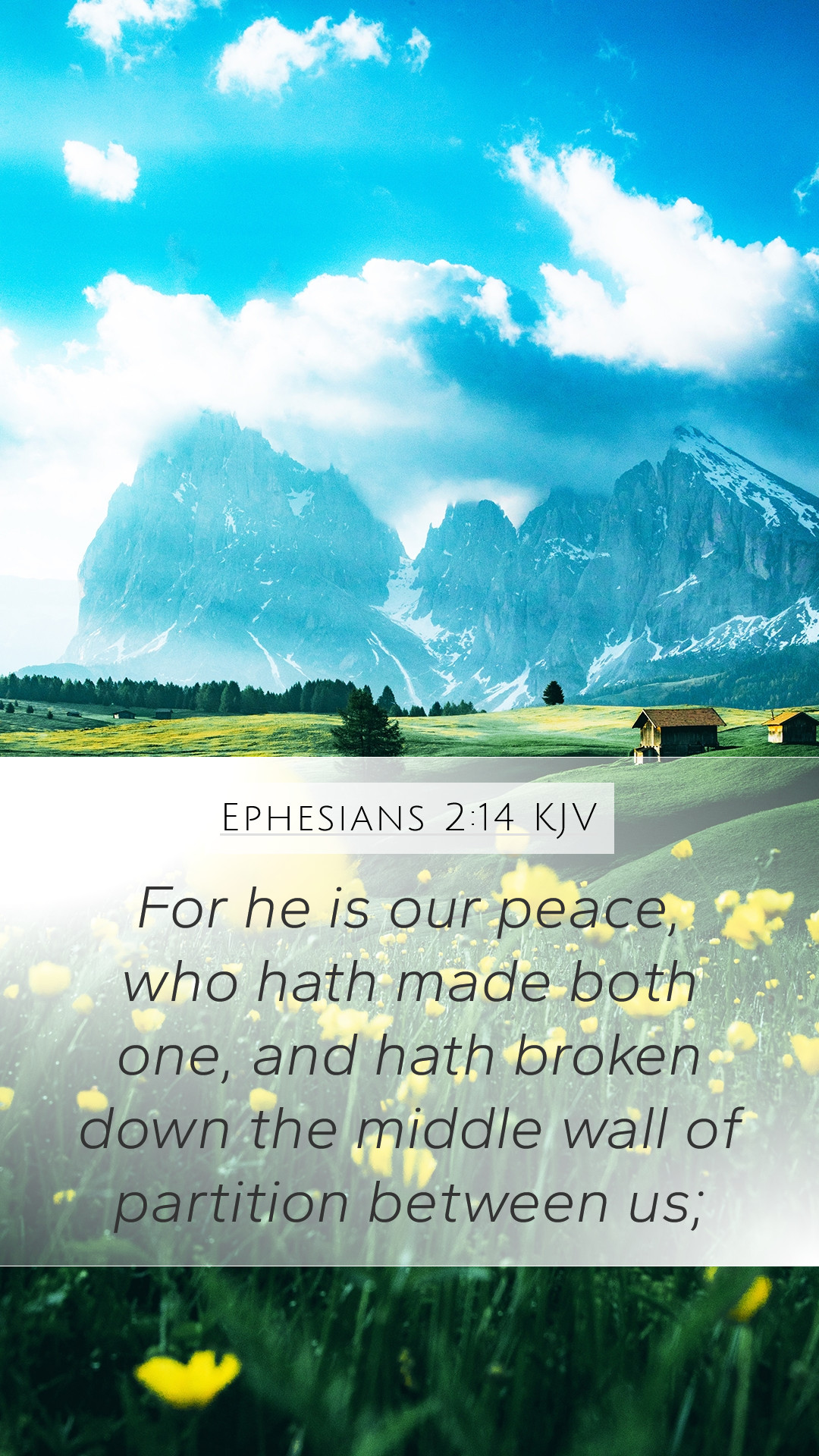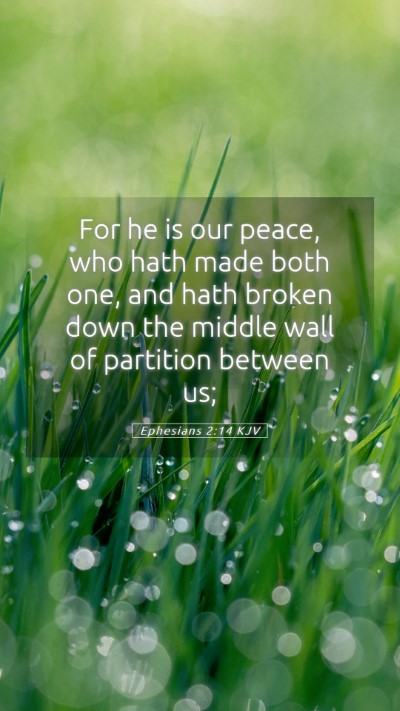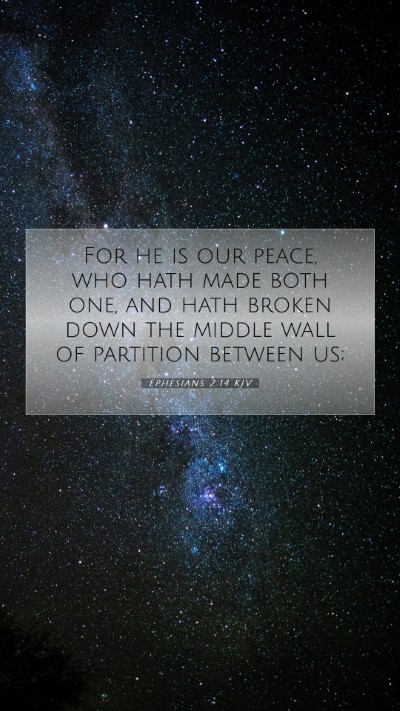Ephesians 2:14 - Understanding the Meaning and Interpretation
This commentary explores Ephesians 2:14, providing insights from esteemed public domain commentators such as Matthew Henry, Albert Barnes, and Adam Clarke. Whether you're seeking Bible verse meanings, Bible verse interpretations, or Bible verse explanations, this analysis offers a comprehensive understanding.
Verse Text
"For he is our peace, who hath made both one, and hath broken down the middle wall of partition between us;" - Ephesians 2:14 (KJV)
Context Overview
The apostle Paul writes to the Ephesians, highlighting the transformation from division to unity brought by Christ. This verse serves as a pivotal point in establishing the doctrine of reconciliation between Jews and Gentiles.
Commentary Insights
Each commentator brings a unique perspective to the verse:
- Matthew Henry: Henry emphasizes Christ as the mediator of peace between humanity and God, as well as between different groups. The "middle wall of partition" symbolizes the law which separated Jews from Gentiles, and Christ's sacrifice abolishes this division.
- Albert Barnes: Barnes focuses on the theological implications of unity in Christ. He explains that Jesus' work not only reconciled individuals to God but also fostered a sense of community among believers, breaking down cultural and societal barriers.
- Adam Clarke: Clarke elucidates the metaphor of the "middle wall" referring to both literal and figurative barriers. He reflects on how Christ's death and resurrection effectively dismantled these barriers, creating a new entity—the Church—comprised of all believers.
Deep Dive into Key Themes
1. Christ as Peace
At the heart of this verse is the assertion that Christ embodies peace. This peace is not merely the absence of conflict but a profound state of reconciliation with God and fellow believers.
2. The Middle Wall of Partition
This "middle wall" metaphorically represents the law and customs that distinguished the Jews from the Gentiles. Through Christ, such divisions are abolished, underscoring the unifying aspect of the Gospel.
3. Unity in the Body of Christ
By breaking down barriers, Jesus calls for a diverse community unified in faith, illustrating a central theme of Bible study insights—the collective identity of believers.
Application of the Verse
Understanding Ephesians 2:14 is crucial for personal reflection and communal worship. Believers are encouraged to:
- Reflect on the significance of peace in their lives.
- Engage with others, transcending cultural and societal divisions.
- Embrace the unity that comes through faith in Christ, fostering love and acceptance within the Church.
Cross References
For a more enriched understanding, consider these related verses:
- Galatians 3:28: "There is neither Jew nor Greek, neither slave nor free, nor is there male and female, for you are all one in Christ Jesus."
- Colossians 3:11: "Here there is not Greek and Jew, circumcised and uncircumcised, barbarian, Scythian, slave, free; but Christ is all, and in all."
- Romans 10:12: "For there is no distinction between Jew and Greek; the same Lord is Lord of all, bestowing his riches on all who call on him."
Conclusion
In summary, Ephesians 2:14 holds significant meaning regarding reconciliation and unity through Jesus Christ. This verse embodies essential themes in Bible verse commentary and encourages believers to pursue peace and unity in their communities. For those involved in Bible study groups or online Bible study, this verse provides rich material for discussion and deeper understanding.
As you explore the meaning of Bible verses and seek to apply Scripture analysis in your life, Ephesians 2:14 serves as a powerful reminder of the transformative work of Christ.


